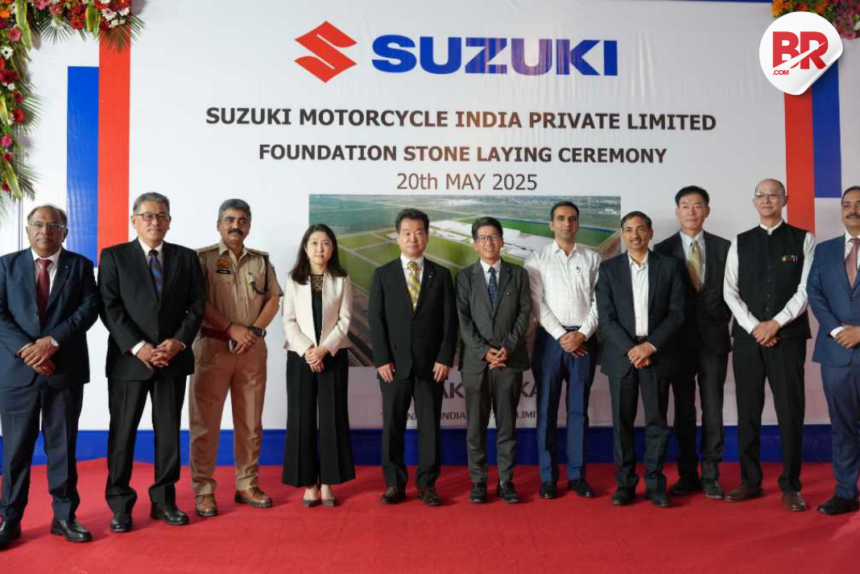
Suzuki is doubling down on India. With an investment of ₹1,200 crore, Suzuki Motorcycle India Private Limited (SMIPL) has kicked off construction of its second manufacturing facility in the country.
This new plant, located in Kharkhoda’s Industrial Model Township (IMT) in Haryana, is expected to roll out 750,000 units annually once operations begin in 2027.

And it’s not just about churning out more scooters and bikes.
A Plant with a Plan: Growth Meets Green
The new facility will sprawl across 100 acres, with 25 acres dedicated to manufacturing and another 25 reserved for green spaces. That’s not just a token lawn—Suzuki is leaning into sustainability. The plant will use lean manufacturing techniques and energy-efficient systems to cut down waste and emissions.
The company isn’t just building more machines—it’s building smarter.
Behind the Scenes: Who Showed Up?
The foundation stone ceremony wasn’t your typical ribbon-cutting event. Top brass from Suzuki Motor Corporation in Japan, including SMIPL Managing Director Kenichi Umeda, joined the event. Also present were Kyoko Hokugo, Minister of Economics at the Japanese Embassy in India, and Dr. Manoj Kumar, Deputy Commissioner of Sonipat.
It’s not every day that global execs and diplomats turn up with a shovel. When they do—it means business.
Also Read Adani Green Starts 37.5 MW Solar Plant in Gujarat’s Khavda
Why Kharkhoda? Why Now?
Suzuki already sells popular models like the Access 125, Burgman Street 125, Avenis, Gixxer, and V-Strom SX in India. The demand is climbing, and Kharkhoda gives Suzuki a launchpad to scale without delays. It’s also a logistical sweet spot—close to Delhi, well-connected to industrial corridors, and friendly to big business.
As India’s appetite for two-wheelers grows, Suzuki wants to be ahead of the curve—not catching up to it.
The Bigger Picture: India as a Manufacturing Magnet
This move fits right into the broader “Make in India” narrative. Foreign firms like Suzuki aren’t just setting up shop—they’re bringing technology, jobs, and long-term commitments. It’s the kind of foreign direct investment (FDI) India needs: high-tech, employment-heavy, and clean-energy focused.
According to Invest India, the auto sector is expected to reach $300 billion by 2026. Suzuki clearly wants a bigger slice of that pie.
For the average Indian worker, this means opportunities. For Indian consumers, it means better access to Suzuki’s two-wheelers. And for Suzuki? It’s a smart way to strengthen its market presence while greening its global footprint.
Here’s the irony: India, once just a market, is now a motor. And Suzuki, once a visitor, is starting to feel a lot like family.
Also Read Surprising Impact of the HCL-Foxconn Semiconductor Plant in Jewar—Is India Ready?












